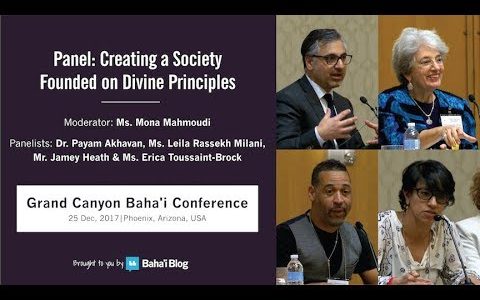Panel: “Creating a Society Founded on Divine Principles”



The Mistake I Made with My Grieving Friend The author of We Need to Talk reveals how she learned to help—and not help—a friend with loss. By Celeste Headlee Photo: Simone Golob/Getty Images A good friend of mine lost her dad some…

How Altruism Can Reduce the Poverty and Wealth Gap David Langness•Dec 30, 2017 CULTUREPART 11 IN SERIES: UNITY AND COMMUNITY Baha’is believe that previous efforts to reduce or eliminate the great disparities of wealth and poverty failed because they did not…

The Heart of the Matter Russell Ballew•Nov 17, 2017 CULTUREPART 5 IN SERIES:SLAVERY When was your last broken heart? Was it over a love lost or concern for a family member’s well-being? Did you suffer a reversal of fortune? Consider…
That Spreading Sense of Dread We Feel David Langness•Nov 14, 2017 CULTUREPART 1 IN SERIES: DREAD The other day, when a friend of mine said “It seems like everyone feels a spreading sense of dread lately,” I knew what she…

Financial Literacy: Walking the Spiritual Life With Practical Feet Brydon J. B. Grant•Nov 2, 2017 • CULTURE Understanding the Baha’i writings requires literacy—and living in this material world requires financial literacy. But financial literacy is taught rarely in schools. Here’s a financial literacy…